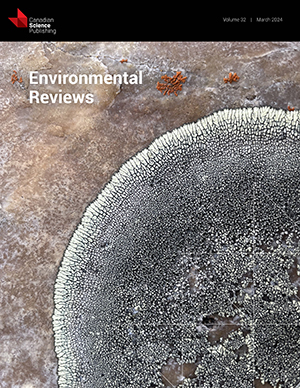在环境决策中应用潜在引爆点的多领域视角
IF 5.1
3区 环境科学与生态学
Q1 Environmental Science
引用次数: 0
摘要
承受压力的生态系统面临着从一种状态迅速过渡到另一种状态的风险。在海洋、淡水和陆地生态系统中,识别和管理这些所谓的临界点仍然是一项挑战,特别是在存在多种潜在相互作用的驱动因素的情况下。关于临界点的知识、引起临界点的机制及其对管理实践的影响正在不断发展,但往往在特定的生态领域内是孤立的。在这里,我们总结了目前关于海洋、淡水和陆地领域临界点的知识,并提供了将这些知识应用于生态系统管理的挑战和机遇的多领域视角。我们汇集了海洋、淡水和陆地临界点的保护从业者和全球专家,并确定了环境政策制定者和管理者面临的七大挑战,包括:1)可预测性,2)时空尺度,3)相互作用,4)可逆性,5)社会生态背景,6)复杂性和异质性,7)选择适当的行动。我们强调了跨标量和跨领域知识生产的机会,并提供了支持临界点管理的建议。虽然临界点的知识是不完善的,但我们强调需要继续努力,将临界点的观点纳入所有领域的环境管理。本文章由计算机程序翻译,如有差异,请以英文原文为准。
A multi-realm perspective on applying potential tipping points to environmental decision-making
Ecosystems experiencing pressures are at risk of rapidly transitioning (‘tipping’) from one state to another. Identifying and managing these so-called tipping points continues to be a challenge in marine, freshwater, and terrestrial ecosystems, particularly when multiple potentially interacting drivers are present. Knowledge of tipping points, the mechanisms that cause them, and their implications for management practices are evolving, but often in isolation within specific ecological realms. Here we summarize current knowledge of tipping points in marine, freshwater, and terrestrial realms, and provide a multi-realm perspective of the challenges and opportunities for applying this knowledge to ecosystem management. We brought together conservation practitioners and global experts in marine, freshwater, and terrestrial tipping points and identified seven challenges that environmental policymakers and managers contend with including: 1) predictability, 2) spatiotemporal scales, 3) interactions, 4) reversibility, 5) socio-ecological context, 6) complexity and heterogeneity, and 7) selecting appropriate action. We highlight opportunities for cross-scalar and cross-realm knowledge production and provide recommendations for enabling management of tipping points. Although knowledge of tipping points is imperfect, we stress the need to continue working towards incorporating tipping points perspectives in environmental management across all realms.
求助全文
通过发布文献求助,成功后即可免费获取论文全文。
去求助
来源期刊

Environmental Reviews
ENVIRONMENTAL SCIENCES-
CiteScore
9.80
自引率
3.50%
发文量
45
审稿时长
>12 weeks
期刊介绍:
Published since 1993, Environmental Reviews is a quarterly journal that presents authoritative literature reviews on a wide range of environmental science and associated environmental studies topics, with emphasis on the effects on and response of both natural and manmade ecosystems to anthropogenic stress. The authorship and scope are international, with critical literature reviews submitted and invited on such topics as sustainability, water supply management, climate change, harvesting impacts, acid rain, pesticide use, lake acidification, air and marine pollution, oil and gas development, biological control, food chain biomagnification, rehabilitation of polluted aquatic systems, erosion, forestry, bio-indicators of environmental stress, conservation of biodiversity, and many other environmental issues.
 求助内容:
求助内容: 应助结果提醒方式:
应助结果提醒方式:


